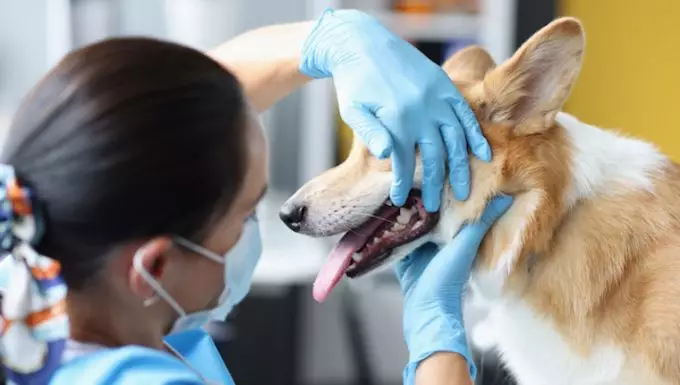Gingival squamous cell carcinoma (SCC) is recognized as the most prevalent form of oral cancer found in dogs, signaling an imperative need for awareness and timely intervention among pet owners. This particular type of mouth cancer can lead to significant health deterioration if not diagnosed and managed promptly. It is crucial to identify symptoms early and seek veterinary attention to avoid metastasis, where the cancer spreads to other parts of the body.
The manifestation of gingival SCC can vary widely among affected dogs, but there are several key symptoms that owners should be vigilant about. Commonly observed indicators may include excessive drooling, noticeable weight loss, foul breath, and an apparent struggle during eating. Other symptoms might involve blood around the mouth, loose teeth, swelling in the jaw area, growths in the oral cavity, and in some cases, a persistent cough.
Recognizing these symptoms as potential warning signs is critical. However, the presence of one or more of these symptoms does not definitively indicate cancer; other health issues could be responsible. Therefore, swift veterinary intervention is essential to ensure accurate diagnosis and treatment.
Interestingly, the precise cause of gingival SCC remains largely elusive, with many cases classified as idiopathic. However, certain risk factors have been identified that could increase the likelihood of developing this type of cancer. Exposure to harmful chemicals, previous radiation therapy, and certain infections have all been posited as potential contributing factors. Moreover, certain dog breeds appear to exhibit a higher predisposition to this form of cancer, including Beagles, Bull Terriers, Dalmatians, Basset Hounds, Poodles, Schnauzers, and Kerry Blue Terriers. Understanding these predispositions can help pet owners take preventative measures where possible.
If a dog exhibits the aforementioned symptoms, a thorough veterinary evaluation is paramount. Veterinarians will typically start by inquiring about the dog’s clinical signs and history, paying special attention to any breed-specific health issues that may pertain. A comprehensive physical examination focusing on the oral cavity is conducted, leading to possible blood and urine tests. However, the definitive diagnosis often hinges on a biopsy of any anomalous growth, confirming the presence of squamous cell carcinoma.
The diagnostic process is critical not just for identifying the cancer but also for determining the most appropriate treatment approach tailored to the severity of the condition.
The treatment regimen for gingival squamous cell carcinoma largely depends on how advanced the cancer is at the time of diagnosis. For smaller tumors, cryosurgery—a method that freezes and, subsequently, removes cancerous tissue—can be effective. However, larger tumors often necessitate more aggressive surgical interventions, potentially involving partial jaw removal.
In certain cases, a combination of therapies—such as chemotherapy and radiation—may be employed to enhance treatment effectiveness. Additionally, photodynamic therapy represents an innovative approach that utilizes lasers to target and eliminate cancer cells.
Throughout the recovery process, dogs require a calm and supportive environment to aid healing. Dietary changes may also be necessary, with softer foods often recommended to accommodate any oral discomfort. Your veterinarian can assist in devising a suitable nutrition plan that meets your dog’s specific needs during recovery.
Awareness around gingival squamous cell carcinoma is imperative for dog owners. Understanding the symptoms, potential causes, and treatment options empowers pet owners to take timely action, ultimately fostering better health outcomes for their dogs. If you suspect your pet may be suffering from this condition, do not hesitate to consult your veterinarian. Early detection and appropriate intervention can make a significant difference in the prognosis and quality of life for your canine companions.
Have you or someone you know navigated the challenges of caring for a dog with gingival squamous cell carcinoma? Sharing personal experiences can provide valuable insights into this journey of care and recovery.

